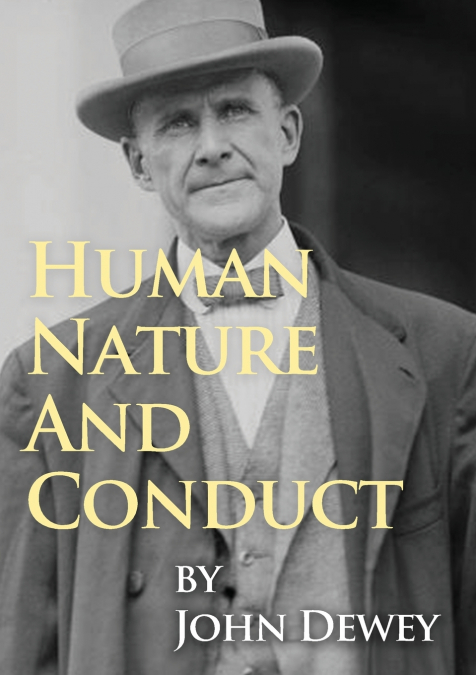
 Librería 7artes
Librería 7artes
 Donde los libros
Donde los libros
 Librería Elías (Asturias)
Librería Elías (Asturias)
 Librería Kolima (Madrid)
Librería Kolima (Madrid)
 Librería Proteo (Málaga)
Librería Proteo (Málaga)
Human Nature And ConductJohn Dewey 'Give a dog a bad name and hang him.' Human nature has been the dog of professional moralists, and consequences accord with the proverb. Man’s nature has been regarded with suspicion, with fear, with sour looks, sometimes with enthusiasm for its possibilities but only when these were placed in contrast with its actualities. It has appeared to be so evilly disposed that the business of morality was to prune and curb it it would be thought better of if it could be replaced by something else. It has been supposed that morality would be quite superfluous were it not for the inherent weakness, bordering on depravity, of human nature. Some writers with a more genial conception have attributed the current blackening to theologians who have thought to honor the divine by disparaging the human. Theologians have doubtless taken a gloomier view of man than have pagans and secularists. But this explanation doesn’t take us far. For after all these theologians are themselves human, and they would have been without influence if the human audience had not somehow responded to them. Morality is largely concerned with controlling human nature. When we are attempting to control anything we are acutely aware of what resists us. So moralists were led, perhaps, to think of human nature as evil because of its reluctance to yield to control, its rebelliousness under the yoke. But this explanation only raises another question. Why did morality set up rules so foreign to human nature? The ends it insisted upon, the regulations it imposed, were after all outgrowths of human nature. Why then was human nature so averse to them? Moreover rules can be obeyed and ideals realized only as they appeal to something in human nature and awaken in it an active response. Moral principles that exalt themselves by degrading human nature are in effect committing suicide. Or else they involve human nature in unending civil war, and treat it as a hopeless mess of contradictory forces. We are forced therefore to consider the nature and origin of that control of human nature with which morals has been occupied. And the fact which is forced upon us when we raise this question is the existence of classes. Control has been vested in an oligarchy. Indifference to regulation has grown in the gap which separates the ruled from the rulers. Parents, priests, chiefs, social censors have supplied aims, aims which were foreign to those upon whom they were imposed, to the young, laymen, ordinary folk a few have given and administered rule, and the mass have in a passable fashion and with reluctance obeyed. Everybody knows that good children are those who make as little trouble as possible for their elders, and since most of them cause a good deal of annoyance they must be naughty by nature. Generally speaking, good people have been those who did what they were told to do, and lack of eager compliance is a sign of something wrong in their nature. 3